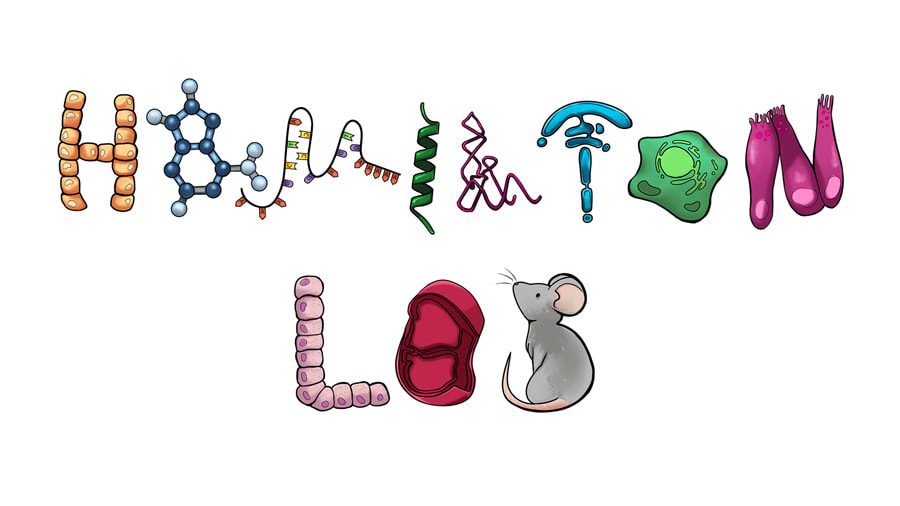Basic and translational gastrointestinal research
The Hamilton lab studies epithelial cells in the gastrointestinal tract and the roles they play in human health, regenerative medicine, and inflammatory bowel disease. Epithelial cells are particularly important because they form a barrier between the external environment and the rest of the body. A breakdown of this barrier is a hallmark of gastrointestinal injury and disease. While we understand a great deal about the function of gastrointestinal epithelial cells, there is paucity of strategies to heal the barrier by directly targeting epithelial cells. Our goal is to identify new mechanisms of gastrointestinal epithelial cell behavior that can serve as new therapeutic targets for patients suffering from gastrointestinal diseases.
Performing scientific research to understand human healthOur laboratory is dedicated to basic science discovery and applying our findings to human health and disease.
|
Training the next generation of research scientists We are committed to training the next generation of the scientific workforce and foster a diverse and inclusive environment.
|
The Hamilton laboratory is grateful to our funding sources: National Institutes of Health (NIH)/National Institute of Diabetes and Digestive and Kidney Diseases (NIDDK): R01 1R01DK124369-01, K01 DK100485, R03 DK100485, P30DK050306 and its pilot grant programs; the Helmsley Charitable Trust; Crohn’s and Colitis Foundation Career Development Award program; the University of Pennsylvania Institute for Translational Medicine (ITMAT); and the Children's Hospital of Philadelphia (CHOP) Research Institute Development Funds. Banner graphic designed by Arwa Abbas.
If you would like to support research in the Hamilton lab, please contact Dr. Hamilton via the Contact tab and she can direct you to Children's Hospital of Philadelphia Gastroenterology Division's Development Office.
If you would like to support research in the Hamilton lab, please contact Dr. Hamilton via the Contact tab and she can direct you to Children's Hospital of Philadelphia Gastroenterology Division's Development Office.

